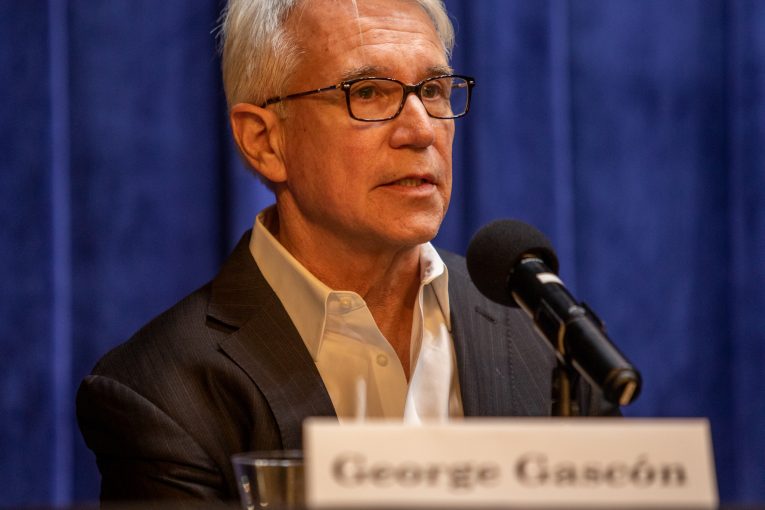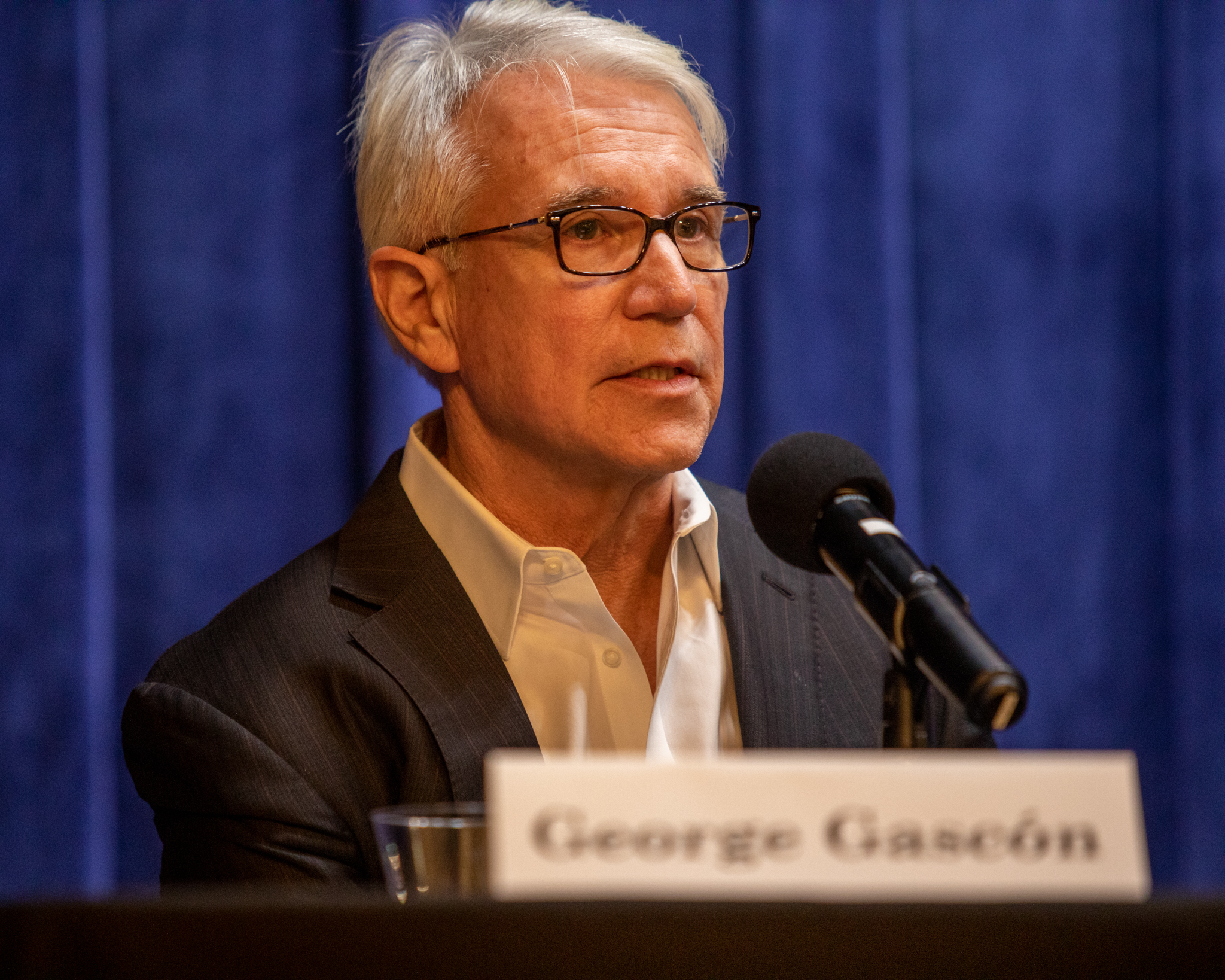

By David M. Greenwald
Executive Editor
Los Angeles, CA – Once against Los Angeles County District Attorney George Gascón held a press conference, offering his condolences to the families, friends and colleagues of El Monte Police Cpl. Michael Paredes and Officer Joseph Santana. But he also defended the charging decision and explained why the suspect who shot the officers had been released from prison.
“This has been a difficult few days in Los Angeles County, and many people are in pain, mourning the loss of these heroic officers,” District Attorney Gascón said. “I know that their families will be grieving for a long time, and that no words will ease their suffering. As a former police officer, I deeply appreciate the sacrifices of these officers and their commitment to making our county safe.”
Last week the LA Times reported that the man who shot and killed the two officers “could have faced significantly more time in prison when he was last charged with a crime. But one of Dist. Atty. George Gascón’s most heavily criticized policies probably resulted in a lower sentence, according to documents reviewed by The Times.”
Thirty-five-year-old Justin Flores, who died in the confrontation last week, had been charged with being a felon in possession of a firearm and methamphetamine when he was arrested by Los Angeles County Dheriff’s deputies in 2020.
The Times reported, “Flores had been convicted of burglary in 2011. Burglaries are strike offenses, which make suspects charged with later crimes eligible for harsher sentences. Flores’ earlier conviction means he had one strike against him when he was charged in 2020.
“But the prosecutor assigned to the case, Deputy Dist. Atty. Larry Holcomb, said he had to revoke the strike allegation after Gascón took office, according to a disposition report reviewed by The Times. That’s because the new D.A. had issued a ‘special directive’ that barred prosecutors from filing strike allegations on his first day in office.”
However, on Tuesday, Gascón defended his office’s charging decisions.
“Understandably, many of us are angry, including myself, and we all wish that we could predict violence. But the reality is that we can’t,” he said. “In this particular case, the history of the suspect, Mr. Flores, did not contain any evidence of violence. He was basically someone that had been drug addicted for many years.”
Gascón noted that Flores had been arrested mostly for drug related offenses, and “almost a decade ago, he was arrested and convicted for burglarizing his grandparents’ home and stealing a TV.” But since then, he “remained pretty much away from the criminal justice system until the arrest in this particular case where he was arrested for possession of drugs, for personal use and the possession of a gun.”
He said “the outcome in this particular case, given what we knew, then no history of violence, very little contact with the criminal justice system for nearly 10 years, was appropriate.”
Gascón said, “When people are arrested for serious crimes, we work hard to ensure that there are serious consequences, including lengthy periods of incarceration, but we have an imperfect system and that’s not only here in LA that’s everywhere. I know this is frustrating to hear, and they may not help heal the wounds for some, but we do not serve our community when we try to pretend that we can predict 100% of the time when these cases are going to occur.”
Instead, he argued that the “best we can do is continue to work towards a safer community and doing the things that we know work like providing effective intervention when people are under probation, ensuring that we have transitional services when people are getting out of prison, because 95% of them do, ensuring that we have appropriate trauma recovery working to ensure that people get employment, that they get housing and they get the services that they need.”
He added, “We have been down the road of being scared and reacting harshly. I think some of us will remember Willie Horton, the horrible case, that dealt decades of very harsh incarceration and over punishment. It never made us any safer. And, in fact, many would argue that we’re here today because of the mistakes that we made in the past.”
He urged the community not to overreact here and to allow them to do the things that they know work.
“We cannot use single tragedies to make policy,” District Attorney Gascón said. “We have done that in the past, reacting harshly to isolated incidents that frighten and anger us. But it failed to increase community safety, contributed to mass incarceration and emptied our public coffers of funds we could otherwise devote to education, healthcare, housing, infrastructure and economic development.
“There will be time over the coming months for reflection, which we should always do and which our office has done,” District Attorney Gascón said. “It is clear we need to do more to provide supervision and reentry services, but we cannot allow our anger to lead us to falsely conclude the worst-case scenario is the norm.”

